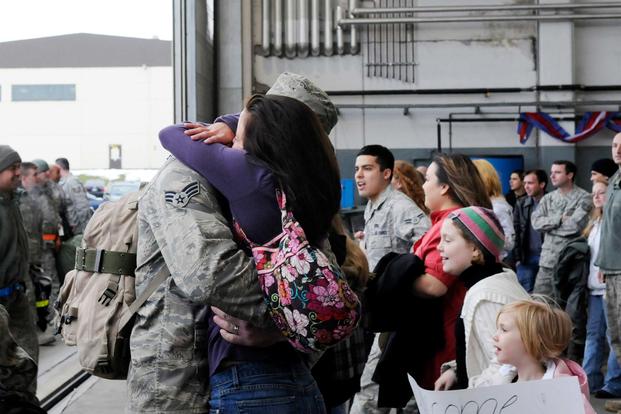A new report from a coalition of organizations promoting the health of children and military families has found that some 3.6 million military children, including 200,000 children of active-duty troops, depend on Medicaid to meet their healthcare needs.
That's roughly 10 percent of the entire population of children on Medicaid, according to the report from the Tricare for Kids Coalition, published Thursday.
The findings, championed by the heads of the National Military Family Association and the Children's Hospital Association, among others, conclude that Medicaid fills care gaps left by Tricare and meets needs for children of veterans who might not be covered otherwise, even if their military parent qualifies for VA care.
A program administered jointly by the Federal Government and states, Medicaid is designed to provide healthcare to low-income populations and people with disabilities.
The study was launched in the wake of efforts in 2017 and early 2018 to cut back Medicaid spending as part of budget-trimming measures.
"As I've talked to folks on [Capitol Hill], what has surprised me the most is the lack of awareness of how our veteran families and our military families depend on that safety net Medicaid provides," Joyce Raezer, executive director of the National Military Family Association, said in a call with reporters Thursday. "It makes me feel good when I talk about veteran families and the light comes on."
Retired Navy Lt. Cmdr. Anthony Putney told reporters that he had begun using Medicaid during his military career for his daughter Lily, who became severely ill as a one-year-old and developed medical complexities that required "near-constant" care. Unlike Tricare, Medicaid covered ongoing medical needs for his daughter including diapers, Putney said.
Putney, who originally qualified for Medicaid based on income as an enlisted air-traffic controller, said he struggled as his career progressed to navigate various states' regulations and processes to keep his daughter receiving care through the program. Now that he is retired and Lily is nearly 20, she remains on Medicaid, he said.
Raezer argued that keeping current Medicaid programs in place as the "ultimate safety net" for military and veteran families actually might support military readiness as well.
"Children [of veterans], when they reach adulthood and want to serve, they may not be healthy enough," she said. "It's very important to our security that veterfan children, like all children, have access to healthcare coverage, so they have it when they need it."
A letter introducing the new report, from Military Officers Association of America President and CEO Dana Atkins, included the oft-touted statistic that 75 percent of Americans ages 18 to 24 are unfit for military service, many of them due to health issues.
-- Hope Hodge Seck can be reached at hope.seck@military.com. Follow her on Twitter at @HopeSeck.












